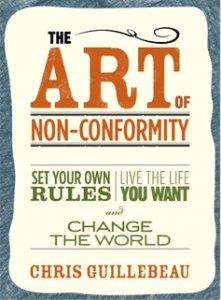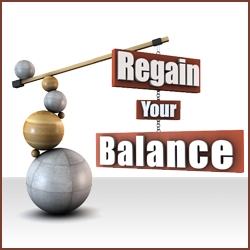
If I was to ask you:
What are the biggest challenges to life balance?
What would be the first reasons that come to mind?
It’s OK, you can take a minute or two to think about this…
What’s holding YOU back from leading a balanced life?
I’m willing to bet good (Monopoly) money that “lack of time” and “lack of money” made an appearance on your list, if not a prominent one.
But there’s an important obstacle to life balance that we tend to overlook and, therefore, don’t overcome.
And that obstacle is… friction.
Before we look at ways to remove friction from our lives, let’s consider why friction arises in the first place.
Why Do We Experience Friction?
Friction occurs when our life areas aren’t properly aligned with each other, or the activities we do within a single life area don’t serve a common purpose.
To make progress in life, you need to define what success means in each life area, and what it means for your life, in general.
If your goals clash, or you’re not acting in ways to reach your goals, then you will experience friction.
Suppose, for example, you hold the Spiritual belief that money is the root of all evil, yet success in your Professional life area means that you make money to support the lifestyle you want. Your Spiritual belief will either stop you from reaching your Professional goal, or you’ll experience guilt for the success you achieve in your Professional life area.
That’s friction.
You’re unable to enjoy and build on your Professional success because you’re making Spiritual compromises.
Every step forward in your Professional life area brings you a step (or two) back in your Spiritual life area.
While your financial wealth grows, your soul shrinks.
Not because money is evil, but because you believe it’s evil, and the contradiction between how you define success in your Spiritual and Professional life areas causes friction that undermines your overall well-being and your ability to experience life balance.
This is a common conflict many people experience, and there are many more common and uncommon ways in which we experience conflict and, therefore, friction in our lives.
Do you find it difficult to make sense of your Spiritual beliefs, because you hold many Intellectual objections to them?
That’s friction.
Do your Recreational activities involve eating junk food in front of the TV, yet you want to lose weight and achieve Physical health, at the same time?
That’s friction.
Do you recognize your Psychological needs to care for yourself and your emotional well-being, yet ignore these needs and make continuous compromises to strengthen Social ties?
That’s friction.
You can experience friction between all your life areas (and within them), and it’s this friction that can greatly undermine your efforts to lead a balanced life.
So…
How Can We Align Our Life Areas?
I’m glad I asked!
Below are 3 simple tips you can use to align your life areas, and remove the friction that’s holding you back.
1- Explicitly define your goals:
What do you consider “success” in each life area?
To know where your life areas clash, you need to explicitly define what your goals are for each life area. You might be able to notice obvious contradictions, as soon as you write your goals down.
It helps to visualize success in each life area. If you were Spiritually successful, what would your life look like? If you were Intellectually successful, how would you behave? Go through all the life areas, and spell out what would make them successful.
Remember, you want to consider all life areas: Spiritual, Intellectual, Psychological, Social, Professional, Recreational, and Physical.
You will also need to define what life success is, and what it looks like. That is, what would make your entire life successful? What do you want your life to look like, and what would you like to accomplish in your lifetime?
Look out for ways your life goals clash with your goals in each life area, and possible ways your goals within each life area may clash.
Once you have your goals defined, you can think of ways to adjust your goals (or completely drop some of them) so that you would no longer live with contradictions between your goals.
I find it insanely difficult to sit at my desk and jot down a list of my goals, which is why I prefer to visualize what I’d like my life to look like. Holding an image in my mind, then describing that image is much easier for me than to come up with a list of goals. This approach might work better for you, as well.
2- Listen to your emotions:
The best indicators of friction are your emotions. While you might be able to overlook contradictions on an intellectual/conscious level, your emotions tend to point out that there’s something wrong in your system (even if they can’t figure out what the problem is).
This is why intuition can play an important role in your life.
By listening to your emotions, and being aware of any feelings of discomfort that can be attributed to inner conflicts, you’ll be able to acknowledge the existence of friction, and use your emotions as a guide to where the friction might exist.
You can ask yourself: How do I feel about this goal/activity? Why do I feel this way about it?
You’d be surprised by what you can uncover with this approach!
3- Figure out what’s holding you back:
While procrastination is commonly blamed on the fear of failure, the issue is a bit more complicated than that.
I can’t go through all the reasons for why we resort to procrastination, but one of the strongest reasons is friction.
If you don’t believe a task you want to do (e.g. putting ads on your site) is right, then you’ll put it off to avoid acting against your own values. The solution might not be to remove the task from your agenda, but to dig deeper to find out whether it is the right thing to do or not. Not just professionally, but morally, as well.
You don’t have to follow popular Professional practices. You need to check in with your own Spiritual principles, and make sure the practices don’t conflict with the principles. Either the practice is wrong, or your principle is wrong (or wrongly applied).
You might think that ads on your site are annoying to your readers when, in fact, your readers might appreciate knowing about products and services they would not have found out about.
Whenever you don’t feel inclined to get a task done, a likely reason can be that there’s a goal that is tugging you in a different direction.
Ask yourself: What’s holding me back from doing this? What do I think about it? Do I feel comfortable doing this?
You can discover areas of friction by being aware of the issues you don’t feel comfortable facing, or when you get “stuck” and don’t know what’s holding you back.
Personal Growth Advice Can Be Simple, But Not Necessarily Easy
I went through a time in my life where I ignored my emotions so much, to the extent that I became numb to them. I wouldn’t be able to answer “how do you feel?” with any depth. You might experience some difficulty with these tips, but I believe they are useful guidelines to work with, and they encourage you to learn important life skills.
Give them a try, even if they prove to be difficult at first. Removing friction in your life is a worthwhile investment you shouldn’t overlook.
If you have any tips to add, or questions to raise, the comments section is at your disposal!
Photo credit: –Mike–
 I heard about Chris Guillebeau, the man behind The Art of Non-Conformity, on Twitter, and started following him there, before checking out his site or reading his manifestos.
I heard about Chris Guillebeau, the man behind The Art of Non-Conformity, on Twitter, and started following him there, before checking out his site or reading his manifestos.

